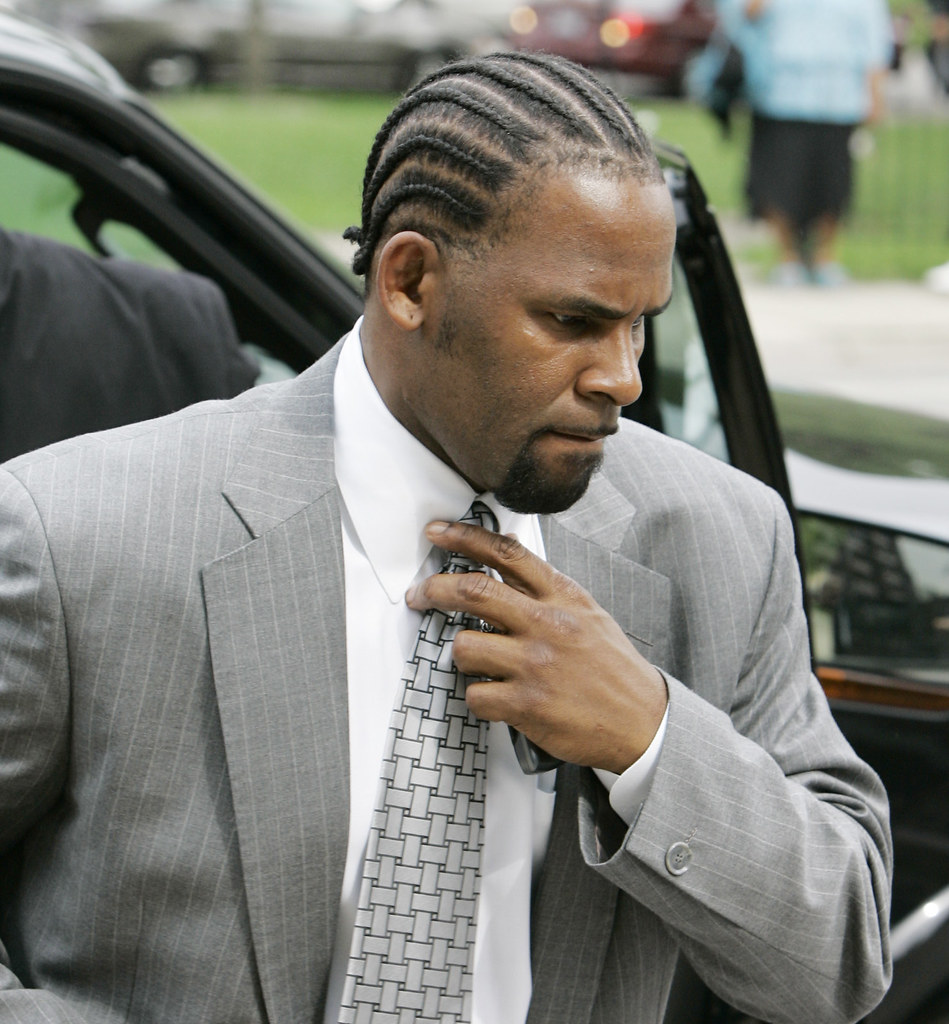Behind the Limelight: Separating the art from the artist

Artists and high-profile celebrities are constantly under the glow, praise and indelible scrutiny of the limelight. At any time, they may face criticism from every direction when something goes awry. That’s part of why it’s difficult for people to discuss their former favorite celebrity when they’ve been accused of something serious, or to decide whether or not to continue publicly identifying as a fan.
Enter R. Kelly. While he may not be my generation’s top singer, with few notable releases in the past couple of years, he’s one of the biggest artists for the oldheads. R. Kelly is no stranger to controversy and allegations, as his criminal actions have received a lot of attention in the past few years after the documentary series “Surviving R. Kelly” released in 2019.
The former R&B superstar spent his entire career with an issue of some sort hanging over his head. From the Aaliyah relationship debacle where they got illegally married when she was 15, to his 2002 case where a video was publicly circulated showing the singer urinating on an underage girl.
Despite all the extra-artistic trouble early on in his career, he evaded any convictions and continued to have a somewhat solid fanbase in the early 2000s. He’s undoubtedly created some of the R&B genre’s biggest classics, releasing “Ignition,” “I Believe I Can Fly,” “Bump N’ Grind” and “Same Girl.” He also enjoyed a high level of public regard at his peak of commercial success, being dubbed the “King Of R&B” at the turn of the millenia. However, everything started to catch up to him around six years ago.
At his ongoing trial Monday, it was revealed that, in 2007, Kelly paid hundreds of thousands of dollars to recover the child pornography he had made and subsequently lost featuring his urination on an underage girl. This bombshell comes in the wake of a saga that consumed the internet when he was interviewed by Gayle King regarding allegations against Kelly for sex trafficking, which ended up being confirmed when Kelly was sentenced to serve 30 years for the offense in 2021.
The Chicago native’s case continues to grow bleaker, as charges of “producing child pornography, enticing minors for sex and obstructing justice in Chicago Federal Court” have been tried against him since Aug. 17th, according to the New York Post.
There’s no denying it, R. Kelly is nowhere near a decent human being. Yet, as was present throughout his turbulent career, we still see people calling for him to be set free. Fans of his are blind to the fact that R. Kelly is a menace to society because of their connection to his music. It’s undeniable that he’s a talented singer — I can’t say that I’ve rid his songs from my playlists because they are genuinely good and entertaining. However, that gives no reason whatsoever for people to believe that he should be pardoned for what he’s done.
I believe that people need to start separating the art from the artist. There’s been a consistent trend over the past decade where if an artist is arrested, people take to social media to post #FreeSoAndSo simply because they really enjoyed their music. I can’t deny, when my favorite artist at whatever time period would get arrested — YNW Melly, NBA Youngboy — I’d follow suit.
As the years went by, I saw how silly it was to do this, how this little meme actually caused people to genuinely believe that their favorite celebrity did nothing wrong, even if a wealth of evidence and victim testimony demonstrate the complete opposite.
Back in 2005, Aaron McGruder, the creator of “The Boondocks,” launched an episode based around the 2002 R. Kelly trial. It depicted two groups that followed the case: One wanted to have R. Kelly sentenced, and the other wanted the singer freed to release more music. The end of the episode shows R. Kelly getting off scot-free when the crowd accuses Tom Dubois — the lawyer attempting to prosecute Kelly — of racism because his wife was white. While humorous, the episode shows the comical lengths to which people might go to neglect artists’ wrongdoings because of their creative abilities. Oh, and Kelly would later be acquitted of all charges in the real-life case in 2008.
With all this being said, I don’t think it’s wrong to enjoy R. Kelly’s music if it gives you that feel good factor or sparks some sort of memory you had way back when. What I’m saying is that you shouldn’t ignore a celebrity’s faults simply because you like their work. There’s no denying Kelly’s influence on the sound of the 2000s and on R&B at large. He was one of the biggest faces in the music industry and worked with other superstars at the time like Usher, Jay-Z, Biggie Smalls, Nas and so many others. It’s a matter of separating the art from the artist. People need to come to the realization that their favorite celebrities might be immensely flawed, and not advocate on behalf of their character due only to a love for their art.
Jason Lopez Lopez is a senior writing about the lives of artists beyond their public personas in his column “Behind the Limelight.” He is also the arts and entertainment editor at the Daily Trojan.

